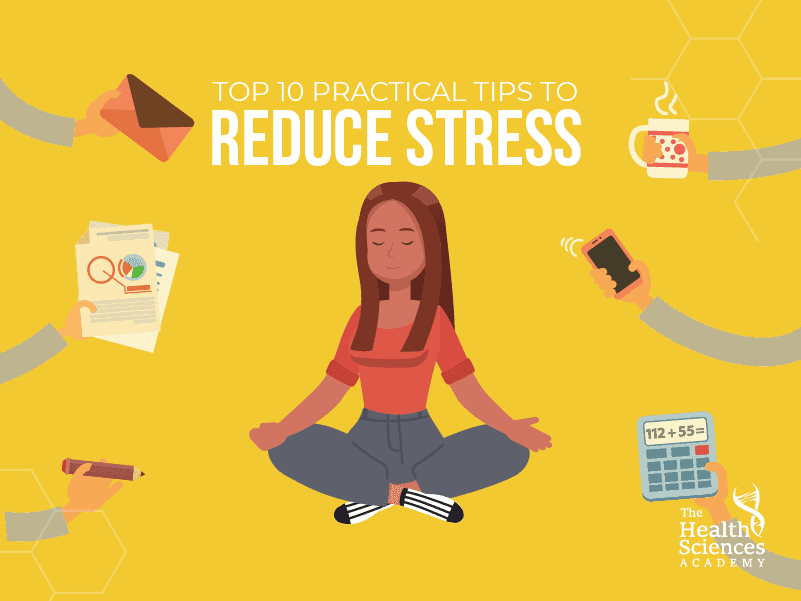In today’s fast-paced world, stress feels almost inevitable. Whether it’s work deadlines, personal pressures, or everyday chaos, chronic stress can wear you down physically and mentally. Fortunately, science offers real, effective strategies to help you manage and reduce stress. Here are 10 of the most powerful, research-backed techniques:
1. Exercise Regularly
Why it works: Physical activity reduces stress hormones like cortisol and increases endorphins — your brain’s natural mood elevators.
Science says: Even just 20–30 minutes of brisk walking a few times a week can improve mood and lower anxiety.
Try this: Take a daily walk outdoors or do a short home workout — consistency matters more than intensity.
2. Practice Mindfulness or Meditation
Why it works: Mindfulness helps you focus on the present, reducing racing thoughts that fuel stress.
Science says: Mindfulness-Based Stress Reduction (MBSR) programs significantly decrease stress and anxiety.
Try this: Start with 5 minutes of deep breathing or a guided meditation app like Headspace or Calm.
3. Get Enough Sleep
Why it works: Poor sleep increases stress reactivity and weakens emotional regulation.
Science says: Adults need 7–9 hours per night; sleep deprivation is linked to higher cortisol levels.
Try this: Create a calming bedtime routine — no screens 1 hour before bed, and keep your sleep schedule consistent.
4. Connect with Others
Why it works: Social support reduces emotional distress and strengthens resilience.
Science says: Positive social interaction lowers blood pressure and improves mental well-being.
Try this: Spend time with friends, join a club, or simply talk to someone you trust about how you feel.
5. Laugh Often
Why it works: Laughter boosts mood, relieves tension, and triggers the release of feel-good hormones.
Science says: Studies show laughter therapy reduces stress, depression, and anxiety.
Try this: Watch a comedy, share funny stories, or try laughter yoga.
6. Listen to Music
Why it works: Music can slow your heart rate, lower blood pressure, and reduce levels of stress hormones.
Science says: Relaxing music can significantly reduce stress before medical procedures and in daily life.
Try this: Create a “calm” playlist with your favorite soothing tracks or classical pieces.
7. Spend Time in Nature
Why it works: Green spaces reduce cortisol, heart rate, and muscle tension.
Science says: “Forest bathing” (shinrin-yoku) in Japan is scientifically linked to stress reduction and immune boost.
Try this: Visit a park, go hiking, or simply sit under a tree for a mindful break.
8. Limit Caffeine and Sugar
Why it works: High levels of caffeine and sugar can spike anxiety and disrupt sleep.
Science says: Overconsumption of caffeine is linked to increased stress and restlessness.
Try this: Swap coffee for herbal tea and reduce processed sugar in your diet.
9. Keep a Journal
Why it works: Writing helps you process emotions and reduce overthinking.
Science says: Expressive writing lowers cortisol levels and improves psychological well-being.
Try this: Write for 5–10 minutes a day about what’s bothering you or list things you’re grateful for.
10. Practice Deep Breathing or Progressive Muscle Relaxation
Why it works: Slowing your breath calms the nervous system and helps ground your body.
Science says: Deep breathing and muscle relaxation techniques reduce symptoms of anxiety and stress.
Try this: Inhale deeply for 4 seconds, hold for 4, exhale for 4 — repeat for a few minutes.
Final Thought
Stress may be part of life, but it doesn’t have to take control. By integrating even a few of these proven techniques into your daily routine, you can dramatically reduce your stress levels and improve your overall well-being.
